News
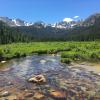 Earlier snowmelt periods associated with a warming climate may hinder subalpine forest regulation of atmospheric carbon dioxide (CO2), according to the results of a new University of Colorado Boulder study.
Earlier snowmelt periods associated with a warming climate may hinder subalpine forest regulation of atmospheric carbon dioxide (CO2), according to the results of a new University of Colorado Boulder study. Shakespearean plays often include fight scenes, but they’re not usually produced in a war zone. Author Qais Akbar Omar has staged a play in Afghanistan and is coming to CU Boulder to talk about it.
Shakespearean plays often include fight scenes, but they’re not usually produced in a war zone. Author Qais Akbar Omar has staged a play in Afghanistan and is coming to CU Boulder to talk about it.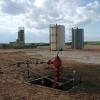 The rate of groundwater contamination due to natural gas leakage from oil and gas wells has remained largely unchanged in northeastern Colorado’s Denver-Julesburg Basin since 2001, according to a new University of Colorado Boulder study based on public records and historical data.
The rate of groundwater contamination due to natural gas leakage from oil and gas wells has remained largely unchanged in northeastern Colorado’s Denver-Julesburg Basin since 2001, according to a new University of Colorado Boulder study based on public records and historical data.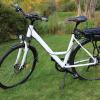 A new University of Colorado Boulder study shows that using an electrically-powered bicycle on a regular basis can provide riders with an effective workout while improving some aspects of cardiovascular health, especially for riders who previously had been sedentary.
A new University of Colorado Boulder study shows that using an electrically-powered bicycle on a regular basis can provide riders with an effective workout while improving some aspects of cardiovascular health, especially for riders who previously had been sedentary.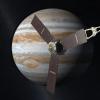 A group of University of Colorado Boulder faculty and students are anxiously awaiting the arrival of NASA’s Juno spacecraft at Jupiter July 4, a mission expected to reveal the hidden interior of the gas giant as well as keys to how our solar system formed.
A group of University of Colorado Boulder faculty and students are anxiously awaiting the arrival of NASA’s Juno spacecraft at Jupiter July 4, a mission expected to reveal the hidden interior of the gas giant as well as keys to how our solar system formed. A new study, published today in the journal Science and led by University of Colorado Boulder researchers, sheds new light on a longstanding biological mystery. Mitochondria are crucial to cellular processes, providing respiratory and metabolic functions that power a cell.
A new study, published today in the journal Science and led by University of Colorado Boulder researchers, sheds new light on a longstanding biological mystery. Mitochondria are crucial to cellular processes, providing respiratory and metabolic functions that power a cell.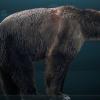 A study led by the University of Adelaide and including the University of Colorado Boulder indicates giant ice age-era mammals that roamed Patagonia until about 12,300 years ago were finally felled by a rapidly warming climate, not by a sudden onslaught of the first human hunters.
A study led by the University of Adelaide and including the University of Colorado Boulder indicates giant ice age-era mammals that roamed Patagonia until about 12,300 years ago were finally felled by a rapidly warming climate, not by a sudden onslaught of the first human hunters. The ability to understand and empathize with others’ pain is grounded in cognitive neural processes rather than sensory ones, according to the results of a new study led by University of Colorado Boulder researchers.
The ability to understand and empathize with others’ pain is grounded in cognitive neural processes rather than sensory ones, according to the results of a new study led by University of Colorado Boulder researchers.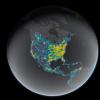 <p>The Milky Way, the brilliant river of stars that has dominated the night sky and human imaginations since time immemorial, is but a faded memory to one third of humanity and 80 percent of Americans, according to a new global atlas of light pollution produced by Italian and American scientists.</p>
<p>The Milky Way, the brilliant river of stars that has dominated the night sky and human imaginations since time immemorial, is but a faded memory to one third of humanity and 80 percent of Americans, according to a new global atlas of light pollution produced by Italian and American scientists.</p> Opioids like morphine have now been shown to paradoxically cause an increase in chronic pain in lab rats, findings that could have far-reaching implications for humans, says a new study led by the University of Colorado Boulder.
Opioids like morphine have now been shown to paradoxically cause an increase in chronic pain in lab rats, findings that could have far-reaching implications for humans, says a new study led by the University of Colorado Boulder.

